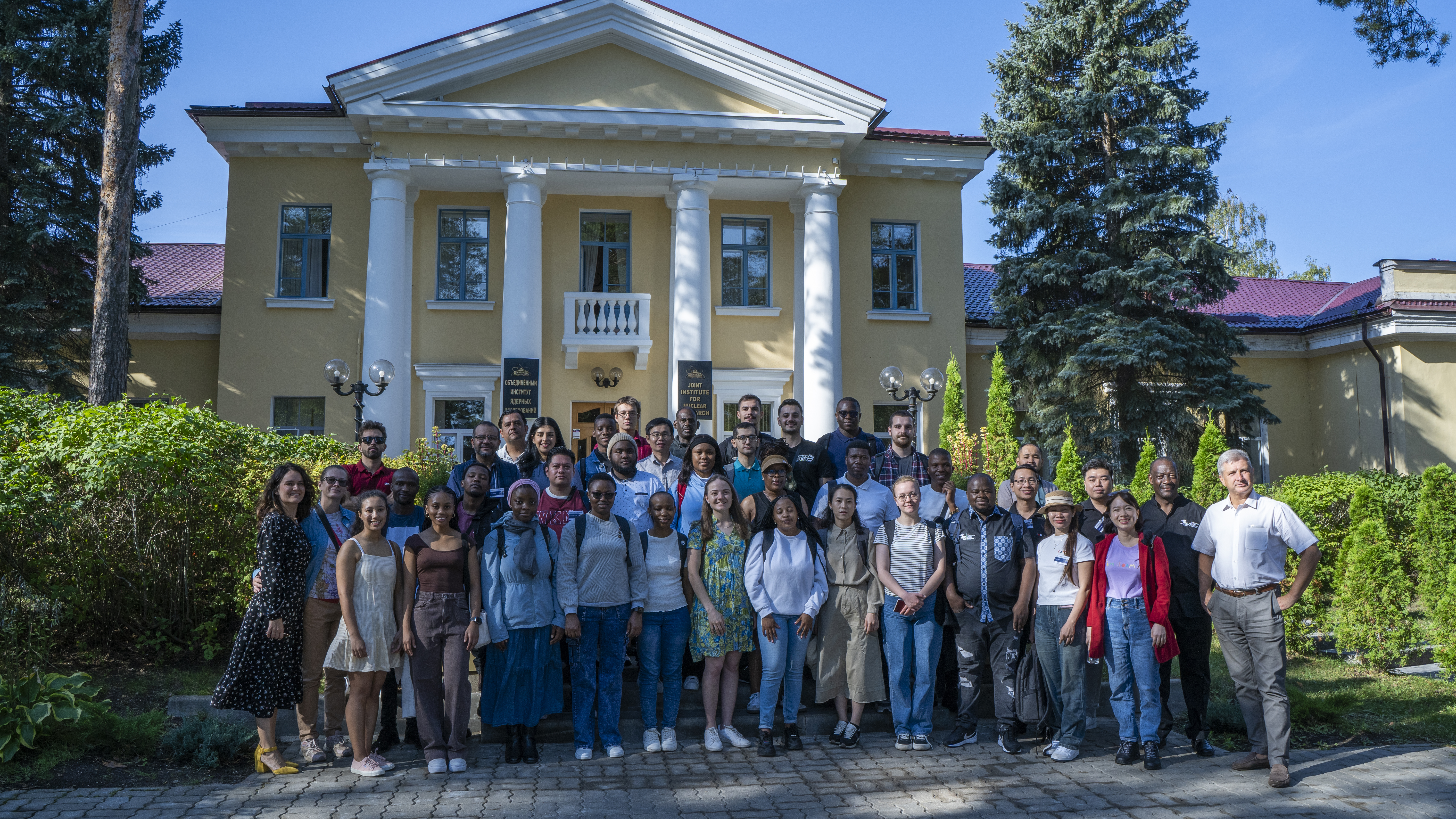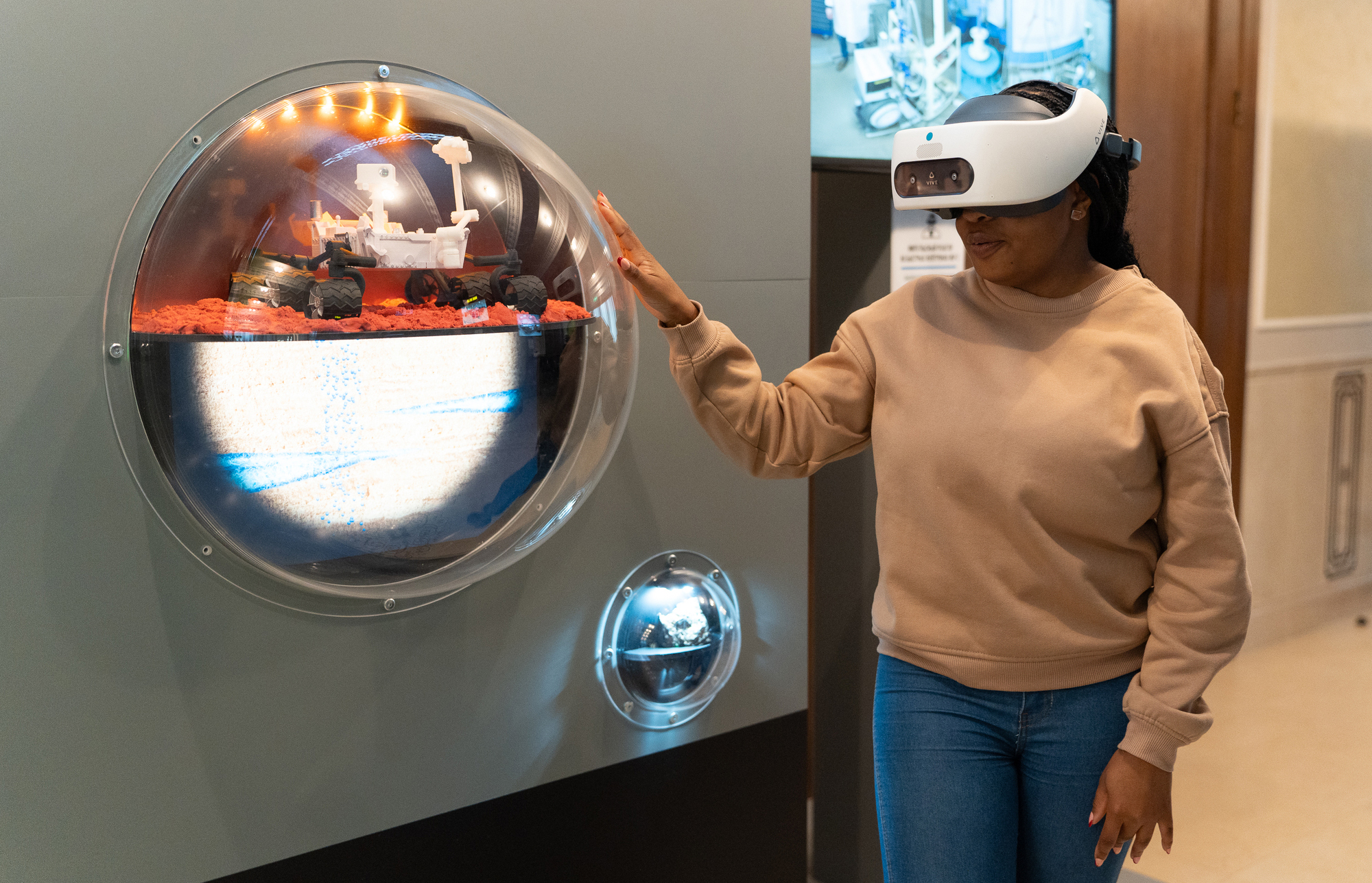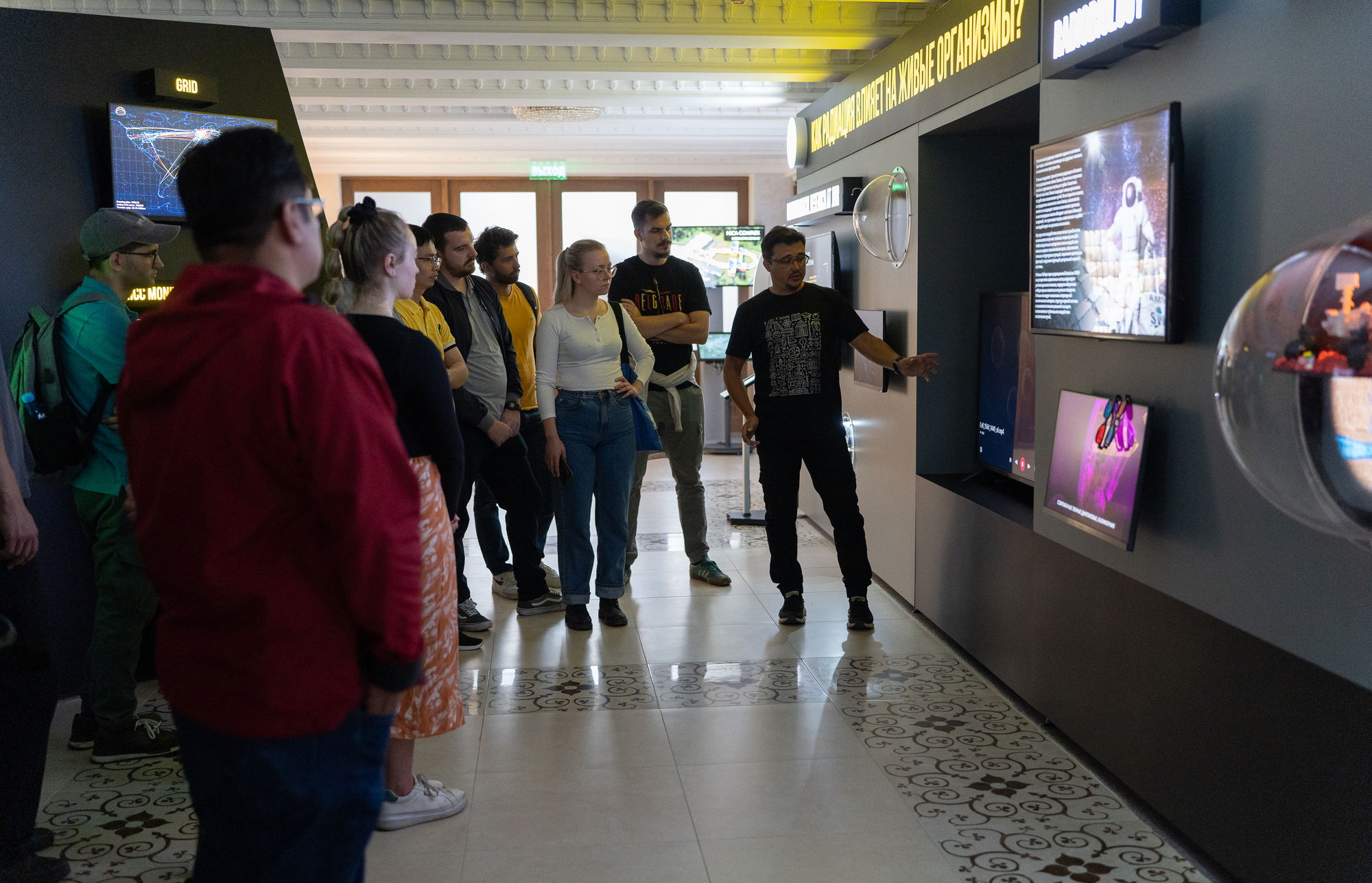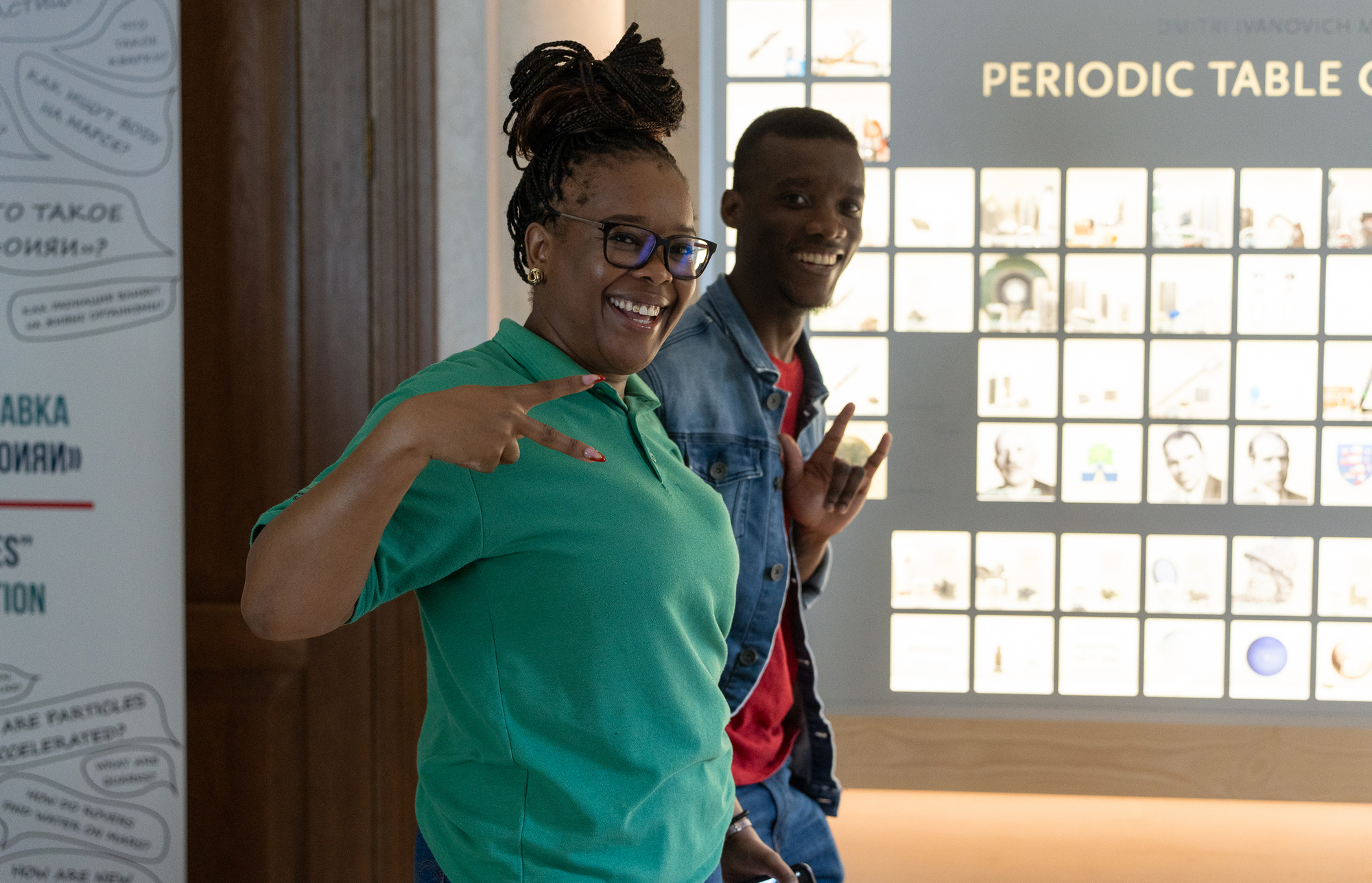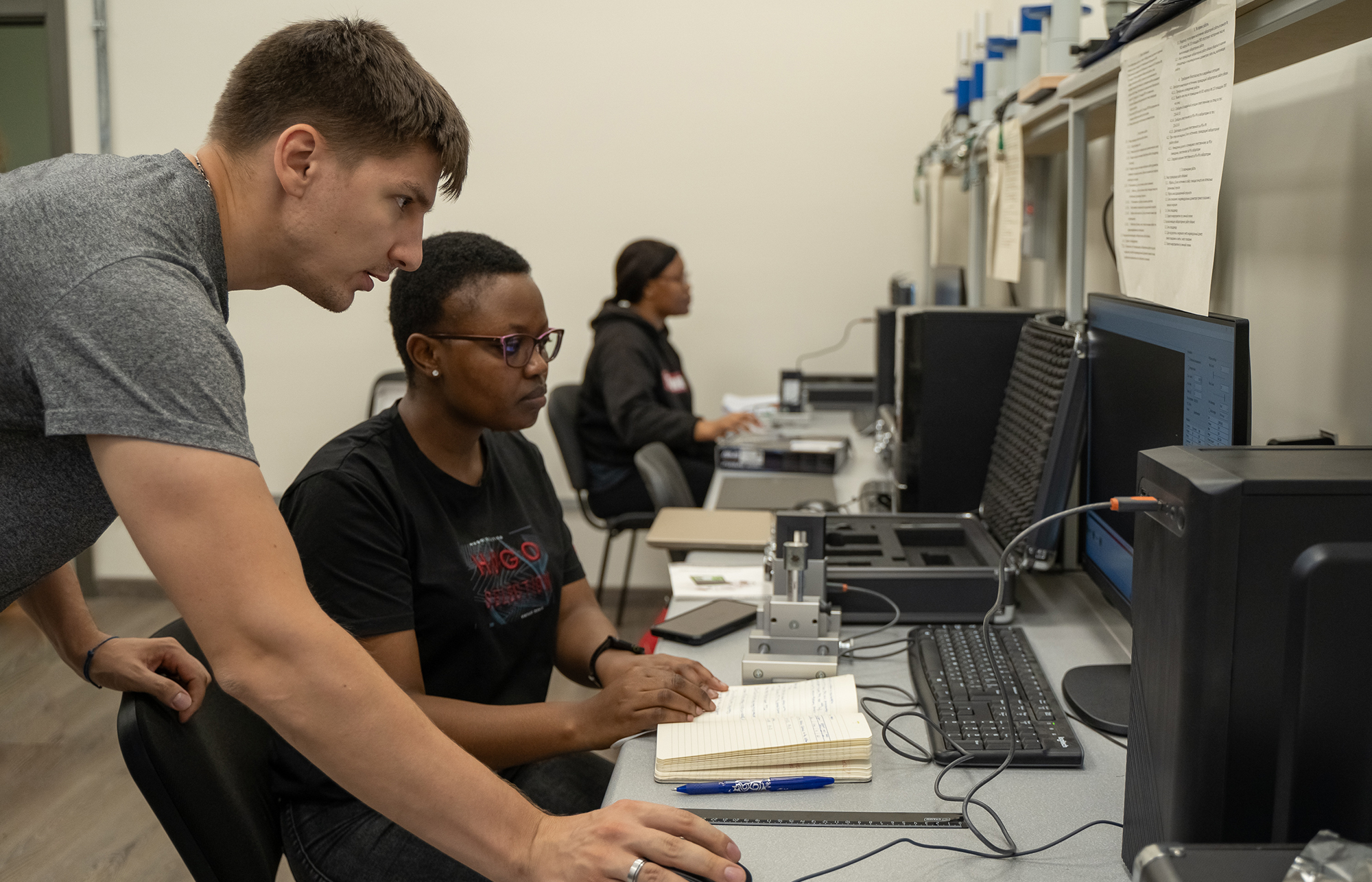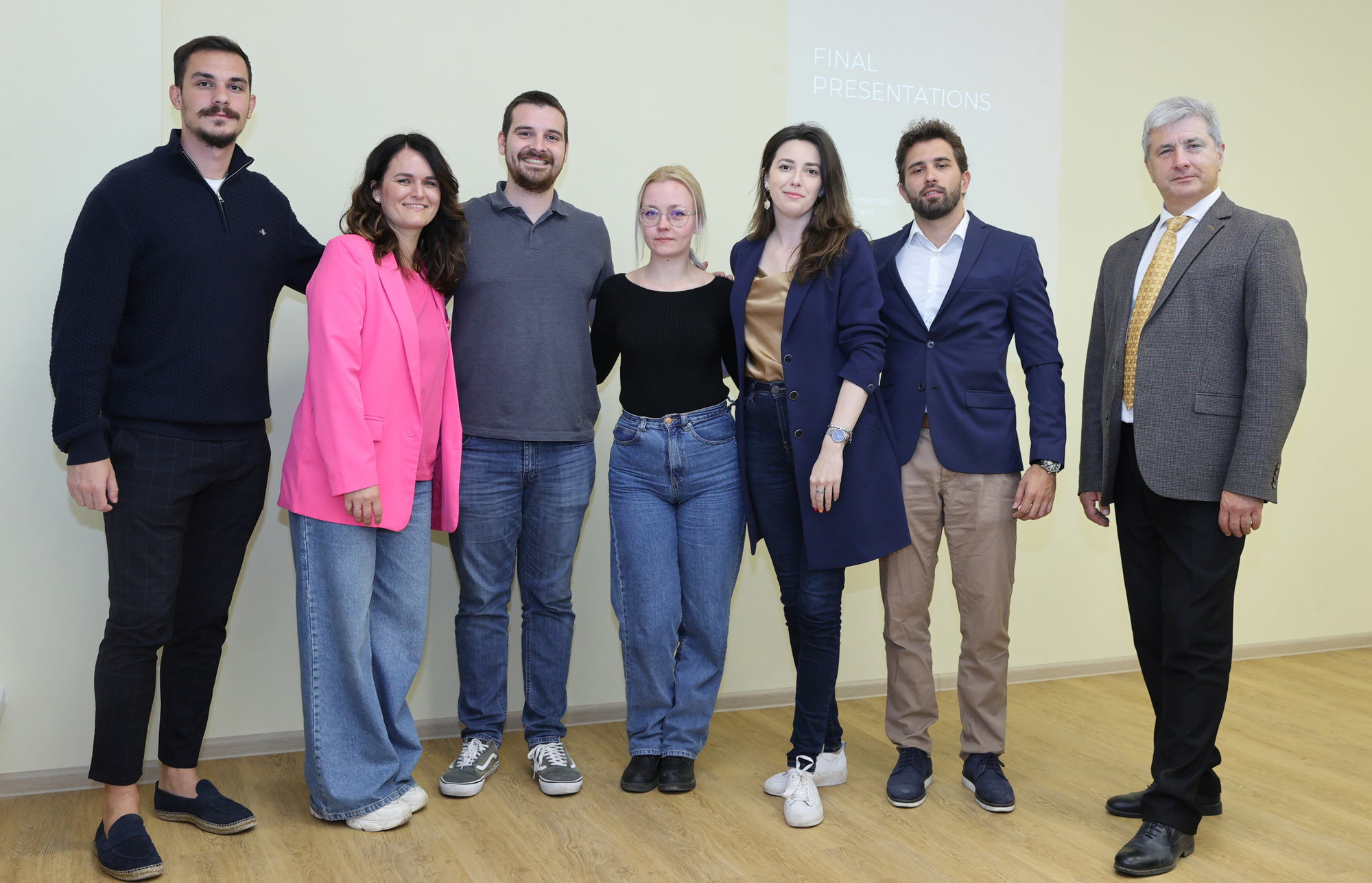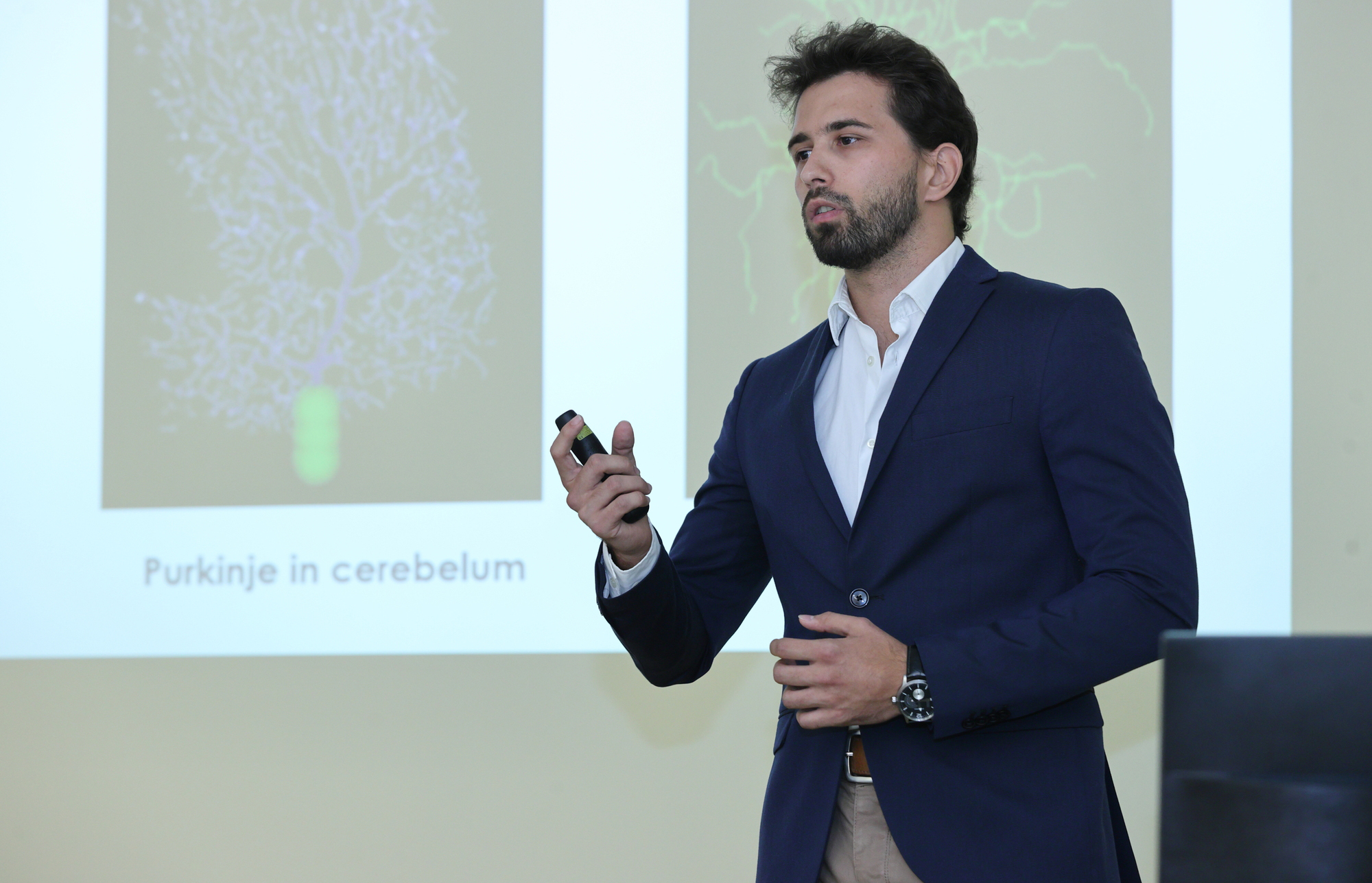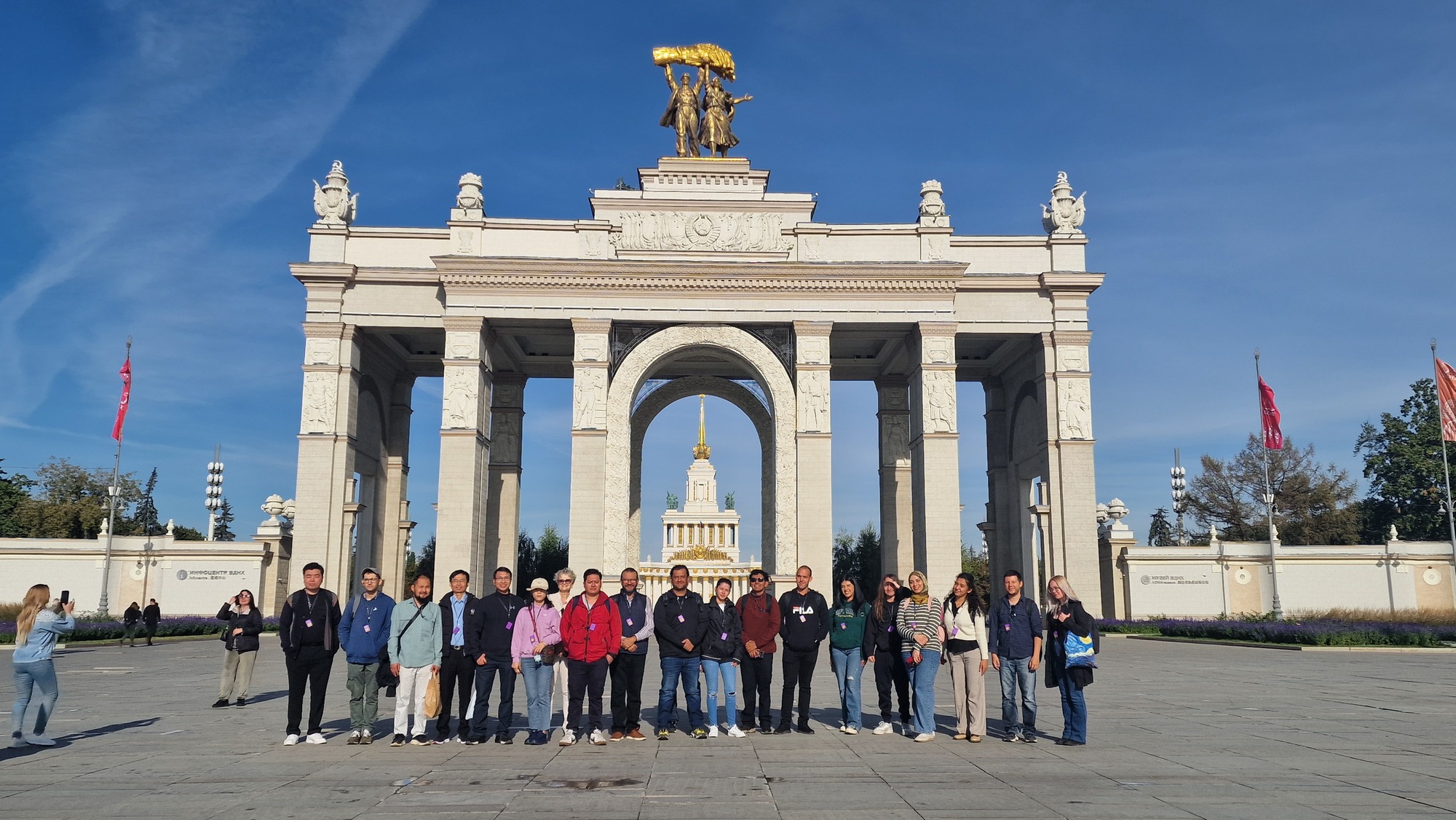Second stage of international student internship finished at JINR
News, 04 October 2024
On 9–27 September, the second stage of the International Practice for students and postgraduates from universities of the JINR Member States took place at the University Centre of the Joint Institute for Nuclear Research. During the three weeks, 37 young participants from Armenia, Belarus, Kazakhstan, Mexico, Serbia, South Africa, and Vietnam worked on educational and research projects under the guidance of the Institute’s leading researchers.
The students toured the JINR Main Facilities interactive exhibition at the Mir Cultural Centre, the Laboratory of Information Technologies, and the Laboratory of High Energy Physics, including the experimental pavilion of the MPD Detector of the NICA Accelerator Complex. In addition, as part of the International Day, the young researchers talked about the culture of their countries. During an excursion to Moscow, the participants were introduced to the history of the Russian Federation.
The practical course allowed the students to not only learn about the scientific activities of the Institute, but also gain valuable experience of working in an international team. The participants had a unique opportunity to conduct their own research, analysing data and developing new methods to solve topical scientific problems.
Inga Zinicovscaia (FLNP): “Aleksa Luković from Serbia and Sang Thi Minh from Vietnam, who participated in our project, were absolutely wonderful. Aleksa is also involved in our new materials science project, which we are working on together with Serbia. Since we need to determine the elemental composition of the samples, Sang agreed to bring them to our colleagues at the nuclear centre in Dalat for irradiation. We will then co-author a paper with Vietnamese and Serbian colleagues”.
Oksana Streltsova (MLIT): “A very talented young man, a graduate student of the Alikhanyan National Science Laboratory (Yerevan) Vigen Gareyan took part in the High-performance Computing for Scientific and Applied Problems project. We are glad to collaborate with such students. They have a good background in mathematics, excellent knowledge in physics, and an experience of solving problems close to the topics of our laboratory’s work.”
Upon finishing the internship, the students noted that the unique research experience they had gained would help them develop valuable skills and competencies required for a successful career in science.
Luane Spammer (University of Stellenbosch, South Africa): “The internship was very useful for me, especially considering my engineering background. In the Modified Metal-Polymeric Track-Etched Membrane Surface Characterisation project, I learned a lot from Alexander Nechaev (FLNR) about materials research and the intricacies of the technological process.”
